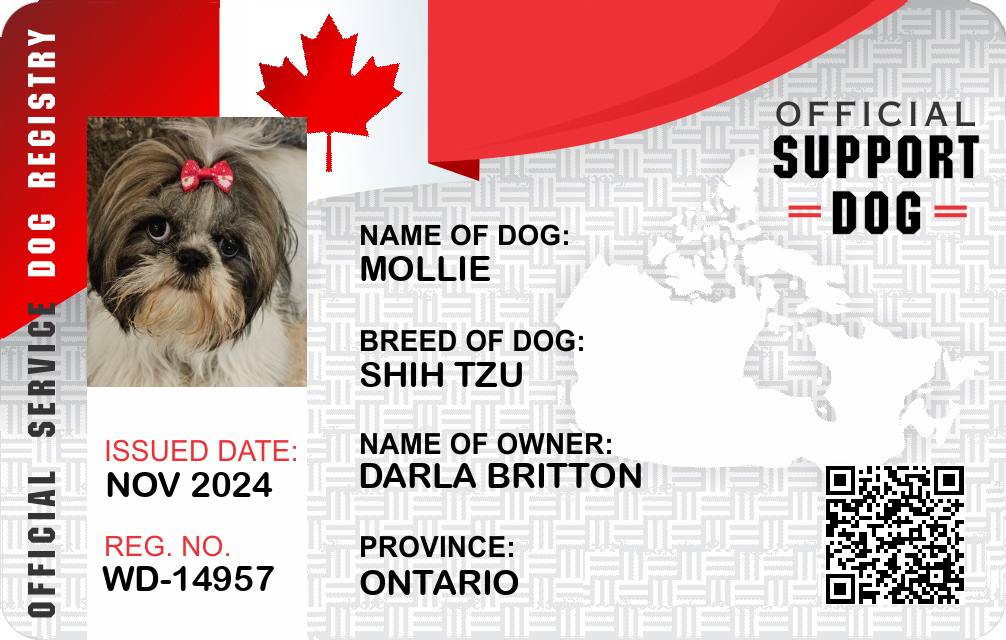Massachusetts Emotional Support Animal Laws
Get Your Documents
Example State Cards


Overview of ESA and Legal Definitions in Massachusetts
What is an Emotional Support Animal?
An Emotional Support Animal (ESA) is an animal that provides therapeutic benefits to individuals with mental or emotional disabilities. Unlike service animals, which are trained to perform specific tasks to assist people with disabilities, ESA primarily offer comfort and emotional stability through their presence. In Massachusetts, as in other states, ESA are not legally defined as pets but rather as support entities that play a crucial role in the well-being of individuals suffering from conditions such as anxiety, depression, or PTSD.
How ESA Differ from Service Animals
ESA differ from service animals in key ways, most notably in their lack of specialized training. Service animals, typically dogs, are trained to perform tasks directly related to the handler’s disability, such as guiding a blind person or alerting someone with a hearing impairment. The Americans with Disabilities Act (ADA) recognizes service animals for their task-specific training, granting them access to most public spaces. Conversely, ESA don’t receive task-specific training, thus do not enjoy the same public access rights. This distinction is important in Massachusetts, where state and federal rules overlap and define the access and rights ESA handlers have.
Key Federal Laws Affecting ESA (e.g., FHA, ACAA)
Several federal laws influence how ESA are treated in Massachusetts. These include:
- Fair Housing Act (FHA): Mandates housing providers to offer reasonable accommodations for individuals with ESA, even in properties that restrict pets. This provision applies across the United States, including Massachusetts.
- Air Carrier Access Act (ACAA): Historically allowed ESA to accompany their owners in aircraft cabins without additional fees or constraints. However, as of 2021, individual airlines may choose not to recognize ESA in the same way as service animals, focusing on trained service dogs.
State-Specific ESA Laws in Massachusetts
Housing Rights and Responsibilities
Massachusetts adheres to the Fair Housing Act, requiring landlords to accommodate ESA without additional fees. Landlords may ask for verification from a healthcare provider confirming the handler’s need for an ESA due to a mental or emotional disability. Restrictions may apply if:
- The animal poses a direct threat to health or safety.
- The accommodation would cause undue financial or administrative burden.
Landlords are entitled to refuse accommodations under these circumstances, provided they comply with anti-discrimination laws.
Public Access and Accommodation
Massachusetts does not extend full public access to ESA. Unlike service animals, ESA are generally not permitted into public establishments like restaurants or shopping centers. Business owners may refuse entry to ESA, aligning with federal guidelines that differentiate service animals from ESA.
Transportation and Travel Rules
In Massachusetts, public transportation systems do not necessarily accommodate ESA as they do service animals. While service animals must be allowed, ESA access remains at the discretion of the service provider unless covered by specific policies that permit ESA.
Employment and Workplace Considerations
Under Massachusetts law, the presence of ESA in the workplace is not guaranteed. Employers are encouraged to consider reasonable accommodations under the Americans with Disabilities Act, though they are not strictly obligated to permit ESA unless the situation warrants it as a reasonable modification for accommodating a disabling condition.
Documentation, Requirements, and Processes in Massachusetts
ESA Letters and Who Can Issue Them
For Massachusetts residents to qualify for an ESA, documentation from a licensed mental health professional is essential. This includes:
- A letter verifying the need for an ESA due to a recognized mental health condition.
- Details that the individual is receiving treatment or consultation for their condition.
Qualified professionals include psychologists, psychiatrists, therapists, or physicians provided they are experienced in diagnosing mental health issues.
Registration, Certifications, and Common Misconceptions
There is no official registry for ESA in Massachusetts. While third-party organizations online may offer certifications and registration for a fee, these are not recognized by law. Misconceptions regarding the registration of ESA can lead to complications, and residents should focus on acquiring an ESA letter from qualified professionals rather than relying on unofficial registries.
Landlord, Business, and Provider Verification Rules
Landlords and business providers in Massachusetts may request documentation for housing-related accommodations. This documentation must verify the handler’s need for the ESA and outline the role of the ESA in alleviating symptoms of a mental health condition. However, they cannot request detailed medical records or diagnoses, as this could violate privacy statutes.
Rights, Limitations, and Legal Risks
Rights ESA Owners Have in Massachusetts
ESA owners in Massachusetts enjoy specific rights:
- Allowed to reside with their ESA in most housing situations, provided proper documentation is presented.
- Exemption from pet fees and deposits under the FHA for ESA.
- Protection from discrimination based on the need for an ESA in housing applications.
Limits on ESA Protections and Common Restrictions
Despite certain accommodations, ESA do not have unrestricted access. Key limitations include:
- No guaranteed entry into public venues like shops or restaurants.
- Restricted recognition on airlines following recent changes to the ACAA.
- No overarching workplace accommodations unless specifically required and justified as reasonable.
Penalties for Fraud or Misrepresentation
Misrepresenting a pet as a ESA or falsely claiming ESA status can lead to penalties under Massachusetts law. Legal consequences may include fines, eviction from housing, or charges for accommodation violations. Such misrepresentations undermine the genuine need for ESA and can diminish the protections available to individuals with disabilities.
Practical Guidance for ESA Owners in Massachusetts
How to Qualify for an ESA Legitimately
- Consult a licensed mental health professional who can determine ESA eligibility based on mental health needs.
- Secure an ESA letter, clearly stating the necessity for the ESA.
How to Talk to Landlords, Airlines, and Employers
- Provide your ESA letter promptly and be prepared to explain your rights politely.
- Emphasize the therapeutic benefits and provide documentation without sharing sensitive medical details.
- When policies are restrictive, inquire about possible accommodations or exceptions.
Summary of ESA Laws in Massachusetts
- ESA provide emotional support and therapeutic benefits but lack training like service animals.
- Federal laws such as the FHA provide key housing protections, while the ACAA offers limited travel rights for ESA.
- Massachusetts requires ESA to be reasonably accommodated in housing but not in public spaces, travel, or employment.
- Misrepresentation of an ESA as a service animal is illegal and may result in significant penalties.
- Consult licensed health professionals for proper documentation and ensure understanding of your specific rights and responsibilities in Massachusetts.
Get Your Documents
Example State Cards













